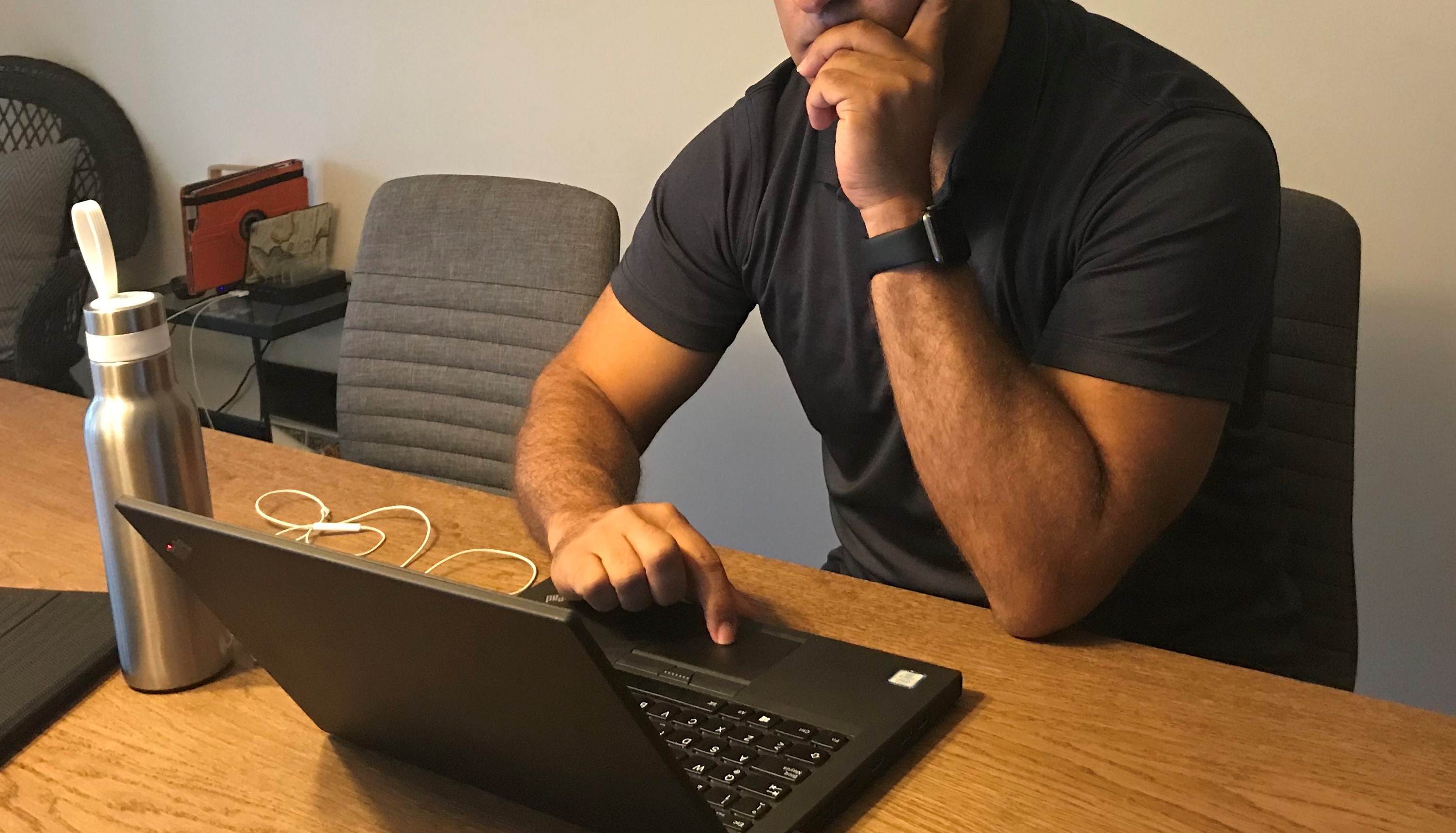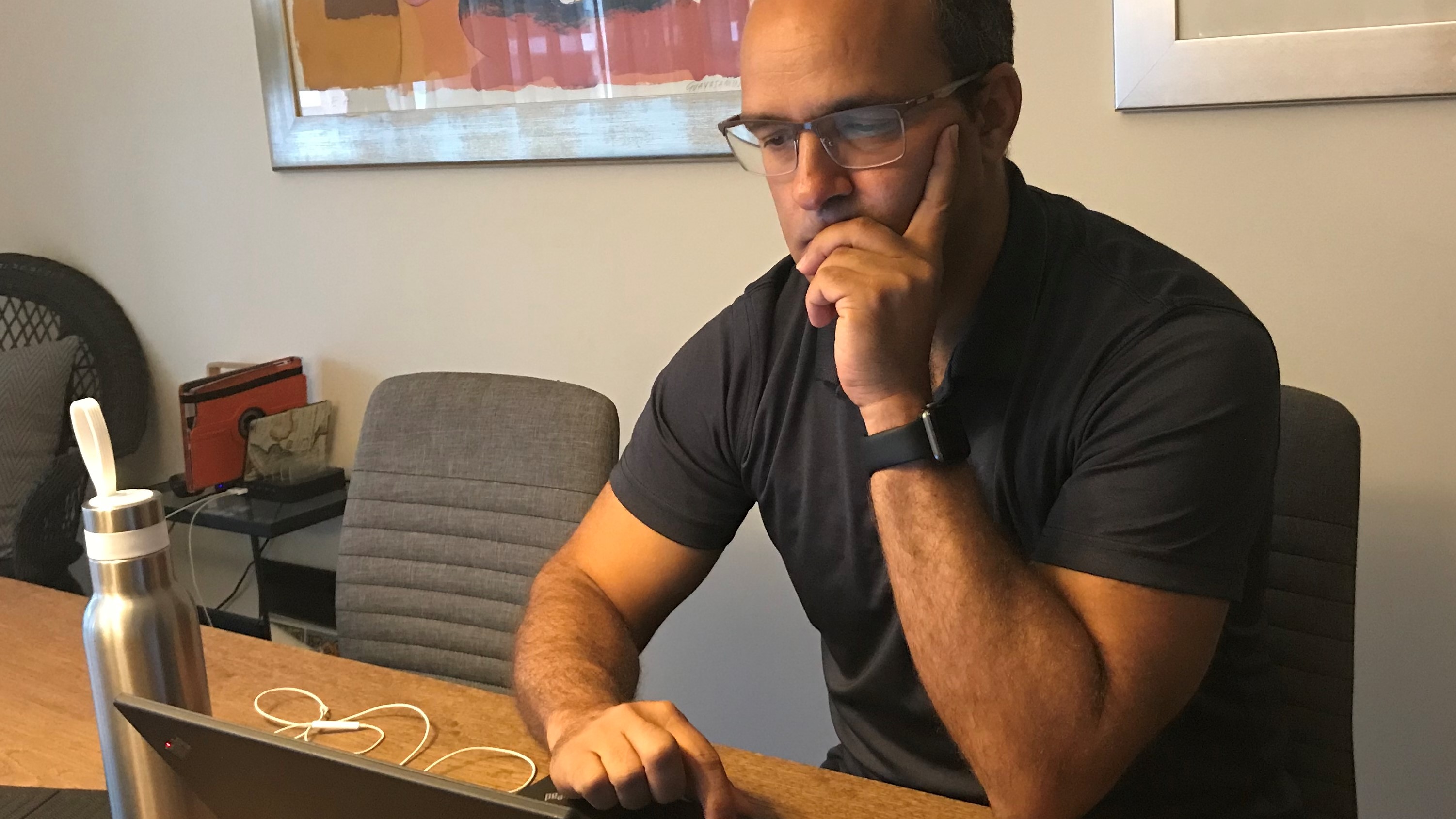Flattening the curve, continuing to work: Uruguay
19 February 2020 Charles ARTHUR

En español
Русская версия
中文版
“We are all working from home using WhatsApp, video conferencing and email. We had a two-hour meeting yesterday where we agreed on a protocol and deliverables for the week ahead,” explains Manuel Albaladejo, the UNIDO Representative at the Regional Office in Uruguay.
Uruguay recorded its first case of COVID-19 on 13 March and the Ministry of Health reacted quickly, issuing a national plan to respond to the pandemic. UNIDO’s Regional Office in the capital, Montevideo, aligned with the plan and, since 16 March, the office’s four regular staff, two consultants and one government-paid, part-time expert have been working from home.
“Government offices are taking similar measures and we are all using technology to mitigate this health crisis,” says Albaladejo, adding “There is a strong sense of unity among government stakeholders, international organizations and civil society to combat this crisis.” |

|
As of 18 March, Uruguay had reported 79 cases of coronavirus. Neighbouring Argentina, with a population 13 times bigger than Uruguay, had 97 reported cases on that date. Uruguay has suspended school classes for two weeks, closed shopping malls and stopped flights from the United States.
UNIDO’s Field Offices are responsible for representing UNIDO in their host countries and promoting UNIDO as an effective partner for development. For this purpose, they maintain close contact with all local stakeholders at the country and regional levels, including government institutions and international entities. As well as Uruguay, the Regional Office in Montevideo covers Argentina, Chile and Paraguay.
Albaladejo says that he will have another virtual meeting with his staff on Friday and he anticipates that most of his team’s work will continue much as before. “The only thing we cannot do is visit our demonstration project pilots and meet with private sector counterparts who are keen to show us their sites. However, I don’t believe our projects will be affected.”
One of the Montevideo office’s main projects is Biovalor, which promotes the use of waste-to-energy in dairy farms. Led by UNIDO and funded by the Global Environment Facility (GEF), the project teaches farmers how to collect, produce and manage methane from cow manure. The gas is then burned to produce electricity. The anaerobic digestion process also produces organic compost which, once spread on fields, acts as a natural fertilizer and brings nutrients back to the soil.
“We have six UNIDO-paid experts/consultants linked to our Biovalor project who sit at the Ministry of Industry. They are also working from home.”
A more recently launched project is helping to improve the competitiveness of Paraguay’s micro, small and medium-sized enterprises. UNIDO is one of four partners implementing the European Union-funded MiPYME COMPITE project in collaboration with Paraguay’s Ministry of Commerce and Trade.
Another project for the GEF7 and the Joint SDG Fund is at the design phase and Albaladejo says, “Here, much of the project work requires sitting quietly to conceptualize log-frames, theory of change, justification and so on.”
Work is also continuing on an initiative to form a Coalition for the Circular Economy in Latin America, together with UN Environment, the Konrad Adenauer Foundation and the Ellen MacArthur Foundation. Albaladejo explains that "this initiative aims to position the circular economy issue on the political agenda of governments in the region, and will also hopefully generate synergies between entities that are already working in this direction." (see recent interview with Chile's País Circular)
Back to the coronavirus crisis, and looking at the bigger picture, he says, “When it’s over, the COVID-19 crisis will make us rethink some critical issues. First, economies are more fragile than we think and wholesale globalization can make them even more vulnerable. Countries are now lacking health supplies because they do not have domestic means to produce goods and fully rely on fewer global players. When a developing country shuts down, supplies run out and prices skyrocket. Then you wish you had supported your manufacturing sector to be resilient and competitive.”
“The COVID-19 crisis will also test whether remote working does pay off. Less commuting means less emissions and a better work-life balance. Maybe this is the time to act on the well-known fact that productivity correlates negatively with the number hours spent at work or sitting at airports and planes for a two-hour meeting on the other side of the globe. Maybe it is also time to stop talking about technology and start making use of it ourselves to improve efficiency, while reducing our global carbon footprint. If the COVID-19 crisis triggers such changes, then it won´t be all negative.”